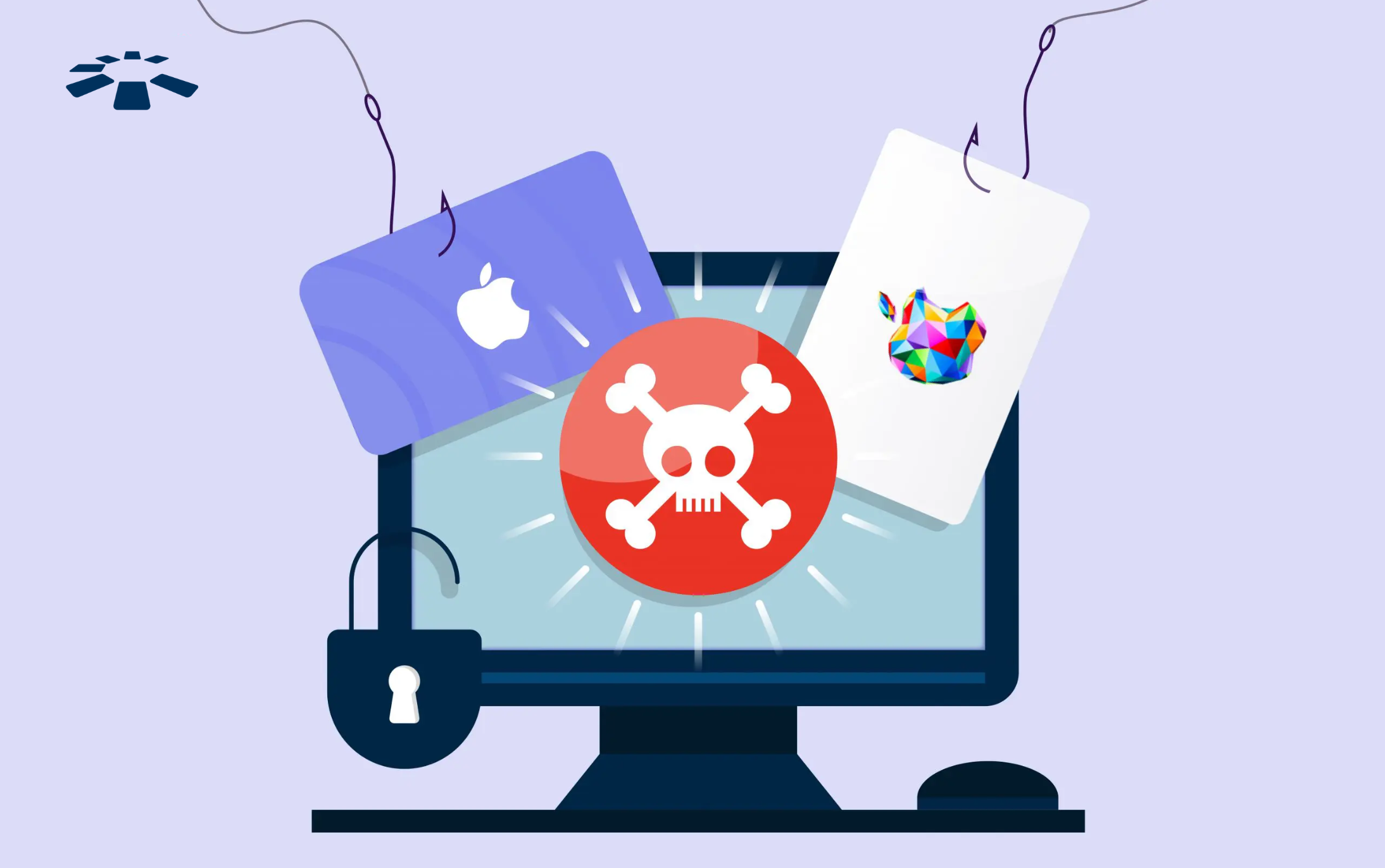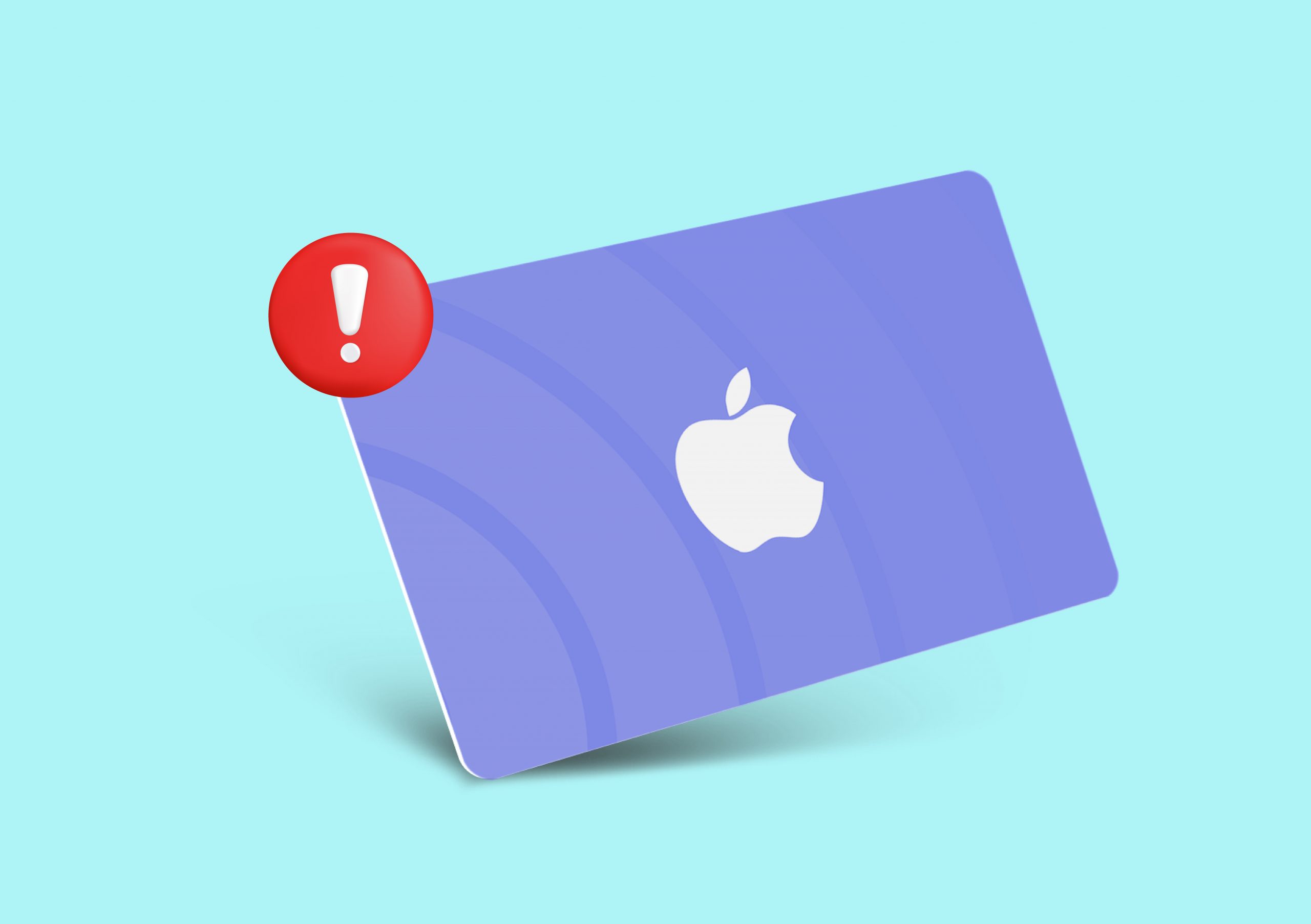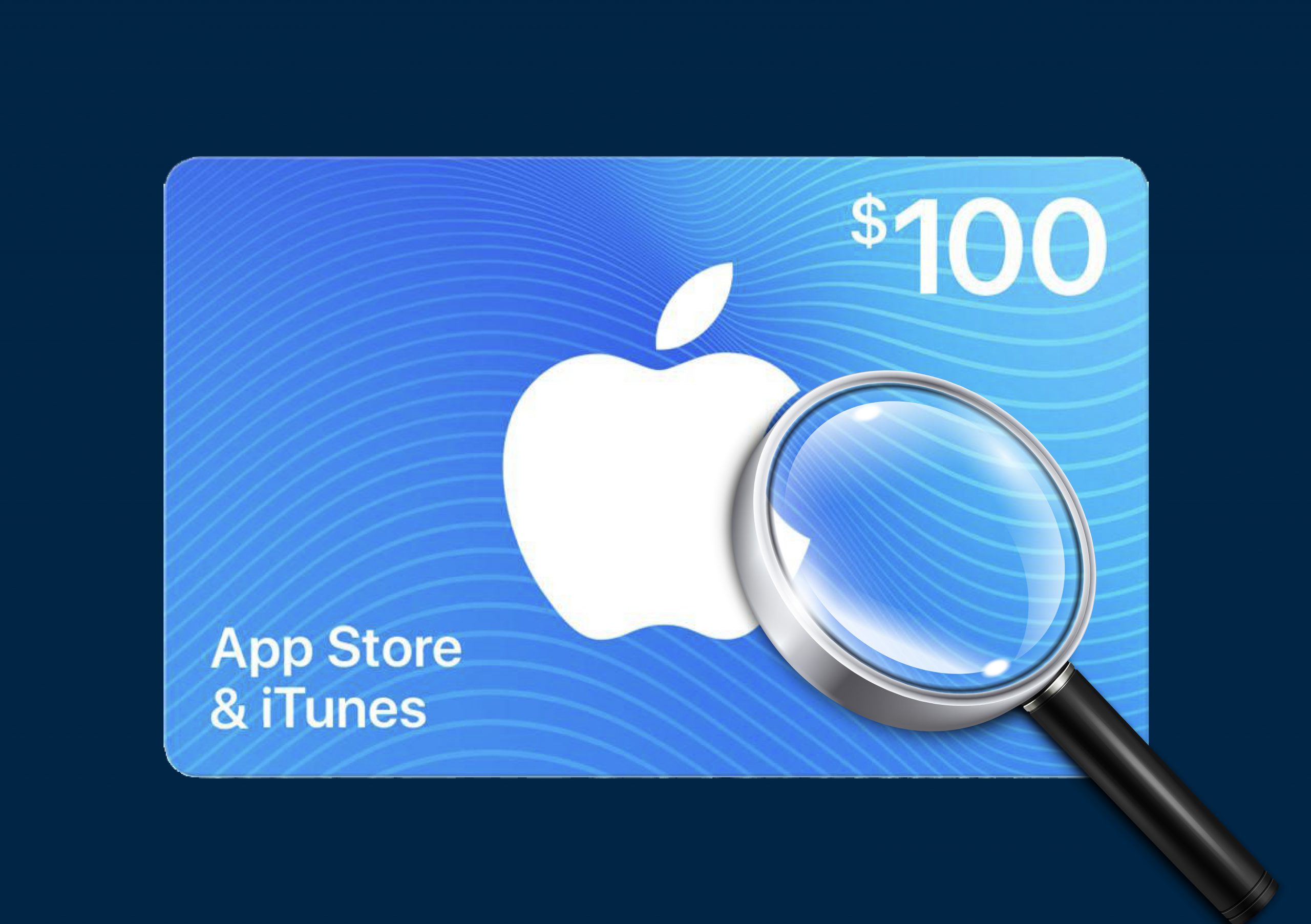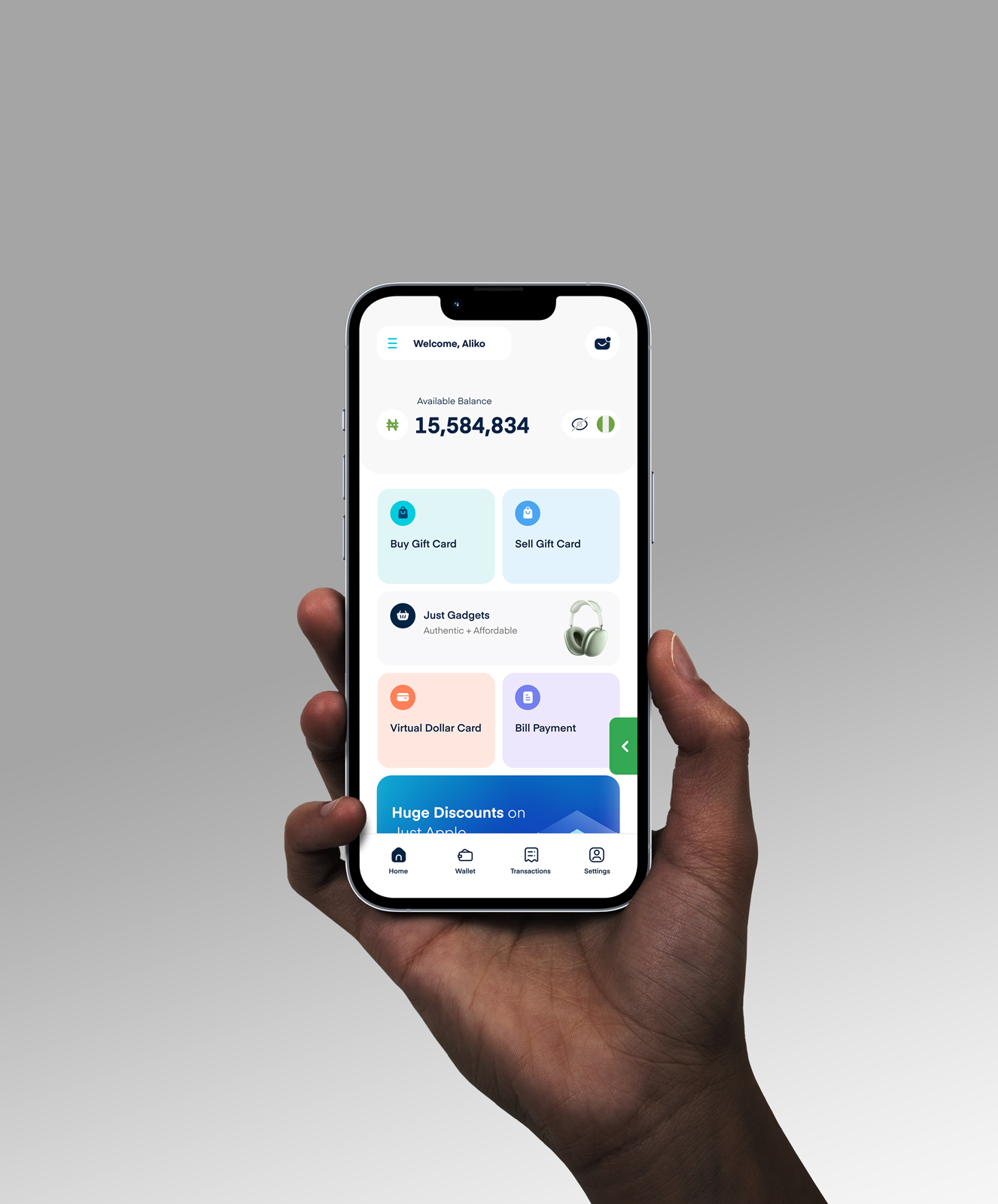How To Spot And Avoid iTunes Gift Card Scams: A Comprehensive Guide

As a former victim of an iTunes gift card scam, I am sharing my firsthand experience; please pay attention while I narrate my ordeal so you will understand why you must take security seriously.
Recently, I woke up to calls from my niece, who had travelled to study in the UK months earlier. We had lost contact for a while. The scammer tricked me into believing that she couldn’t meet up with her rent and needed an extra 100-pound iTunes gift card to settle her debt.
I naively obliged her request, only to find out one hour later that I had fallen for a lazy trick. That was an eye-opener for me, and since then, it has made me extra cautious about my online activity.
I want to give you a comprehensive guide to spotting and avoiding iTunes and general gift card scams. At the end of this guide, you will be equipped with all the information you need to never fall for any iTunes gift card scam in the future.
7 Most Common iTunes Gift Card Scams
Common iTunes gift card scams include impersonation/romance scams, gift card payment scams, fake tech support, giveaway scams, phishing emails and texts, tampered gift card scams, malware and third-party sites scams.
Firstly, why do scammers ask for iTunes gift cards? The truth is that iTunes gift cards are quite popular, and most iPhone users can access an iTunes gift card to purchase music and videos from the iTunes Store. Besides, gift cards generally cannot be tracked back to the scammer.

That said, let me explain the common iTunes gift card scams:
1. Impersonation/Romance Scams
Here, scammers steal your family and friends’ email or phone numbers; they contact you, asking for help in the form of gift cards and promising to pay back later. The other one is romance scams, which often follow love bombing or the scammer asking for help to get through a challenging situation.
2. Gift Card Payment Scams
Like impersonation scams, someone contacts you alleging that you owe utility, tax, etc., payments and asks that you remit the funds via gift card or unauthorised sources without adequate documentation.
3. Fake Tech Support
If you ever receive a call from Apple, Microsoft, or some popular tech company claiming that you’ve got an issue with your laptop and asking for remote access to fix it, rest assured that you’re being scammed. These guys just want access to harvest your personal data. Stealing your gift cards scratches the surface of the harm they can do.
4. Giveaway Scams
In giveaway scams, scammers contact you via email or text, claiming that you’ve won a prize. However, they require you to send a gift card to cover logistics costs or other fees before you can receive your item. They will entice you with a big gift and ask for a smaller gift to claim it.
5. Phishing Emails And Texts
Phishing emails are common, wherein scammers impersonate reputable organizations to illicitly obtain users’ personal data, including gift or credit card details and login information. These attacks usually cast a wide net, targeting numerous individuals with the expectation that someone will be deceived and fall victim to their schemes.
6. Tampered Gift Card Scam
Scammers even target iTunes gift cards in local stores; they may tamper with these cards by attaching fake bar codes to steal the funds when you activate them. Some gift cards might even have zero balances.
7. Malware And Third-Party Sites Scam
In Malware scams, fraudsters tempt users with a free gift card offer. Clicking the link downloads malware onto the user’s computer, which then steals their information, including login details.
Third-party site scams occur when scammers direct victims to a fraudulent site to redeem their gift cards, ultimately resulting in the draining of the gift card funds.
7 Ways to Spot And Avoid iTunes Gift Card Scams
It can be confusing at times to spot these scams early on. In that case, I recommend you watch out for red flags like urgency – they are always in a hurry, they want you to get specific cards, and finally, they will ask you for the gift card number and pin.

Here is how to spot and avoid iTunes gift card scams:
1. Avoid Making Payments With An iTunes Gift Card.
You should generally refrain from making payments to people using iTunes gift cards because they cannot be traced and are a popular tactic employed by scammers.
2. Ignore Unsolicited Communication
If anyone claiming to work for Apple contacts you without you initiating the communication, consider it a clear red flag. You must send a message or call before they will contact you. Most times, they wouldn’t contact you first.
3. Double-check Or Verify Everything
Don’t trust, verify. Be sure to double-check sender emails, links, and phone numbers. Do not be quick to click or accept any offer, apply due diligence, and never be in a hurry, but take some time to ensure that everything checks out.
4. Avoid Disclosing The Numbers On The Back Of Your Card To Anyone
Whatever the case, never disclose the number on the back of your iTunes gift card to anyone. Giving away this number is as good as giving away your gift card; once used, it cannot be retrieved.
5. Report Scam Incidents
If you suspect an incident of scam, quickly make a report to Apple, the gift card retailer or the authorities.
6. Avoid Untrusted Channels
Be sure to avoid emails from untrusted sources and only provide personal details if absolutely necessary. You may even contact the company directly if you suspect any scam.
7. Purchase From Authorised Retailers
Avoid purchasing iTunes gift cards online from unauthorised sources to reduce the incidence of scams, and always take preventive measures to keep your credit information safe.
Frequently Asked Questions About iTunes Gift Card Scam
1. How Common Are iTunes Gift Card Scams?
iTunes gift card scams are quite popular and occur every now and then as they are used daily to pay for digital products on the iTunes marketplace.
2. What Should I Do If I Am A Victim Of An iTunes Gift Card Scam?
If you suspect foul play, quickly contact Apple Support and your authorised retailer and follow up with the local authorities.
3. How Can I Protect Myself From iTunes Gift Card Scams?
Protecting yourself from gift card scams involves several measures, including being wary of phishing emails, buying from authorised sources, and avoiding paying with gift cards.
4. How Can I Report An iTunes Gift Card Scam?
To report an iTunes gift card scam, don’t hesitate to contact Apple Support online.
5. Why Is My iTunes Gift Card Code Invalid?
If your iTunes gift card is invalid, make sure you aren’t confusing it with an Apple Store gift card, as people often mistake them for each other. Then, scan or manually enter the code. If the issue persists, then try contacting Apple Support.
6. What Are Some Alternative Ways To Pay For iTunes Purchases?
Besides iTunes gift cards, alternative payment methods include Apple Pay, Apple Card, Credit or Debit Cards and PayPal.
7. Where Can I Purchase An iTunes Gift Card Online?
If security is your priority, Cardtonic is your best bet to purchase iTunes gift cards online.
Conclusion
This article spotlights common iTunes gift card scams and how to spot and avoid them. Most common gift card scams include impersonation, gift card payments and giveaways. To avoid these scams, you must protect your personal information at all costs and double-check every email or link.
Scammers are increasingly getting complicated with their techniques. They may target your iTunes gift cards because they can easily be used to shop online or traded for cash; finding a buyer for them won’t be a hassle. Therefore, you must stay informed of all the latest tricks to protect your funds.

